We occasionally link to goods offered by vendors to help the reader find relevant products. Some of these may be affiliate based, meaning we earn small commissions (at no additional cost to you) if items are purchased. Here is more about what we do.
Drinking smoothies is a great way to get out the door in a hurry, but there’s way more to love about them than the grab-and-go convenience and quickness with which you can make and drink one.
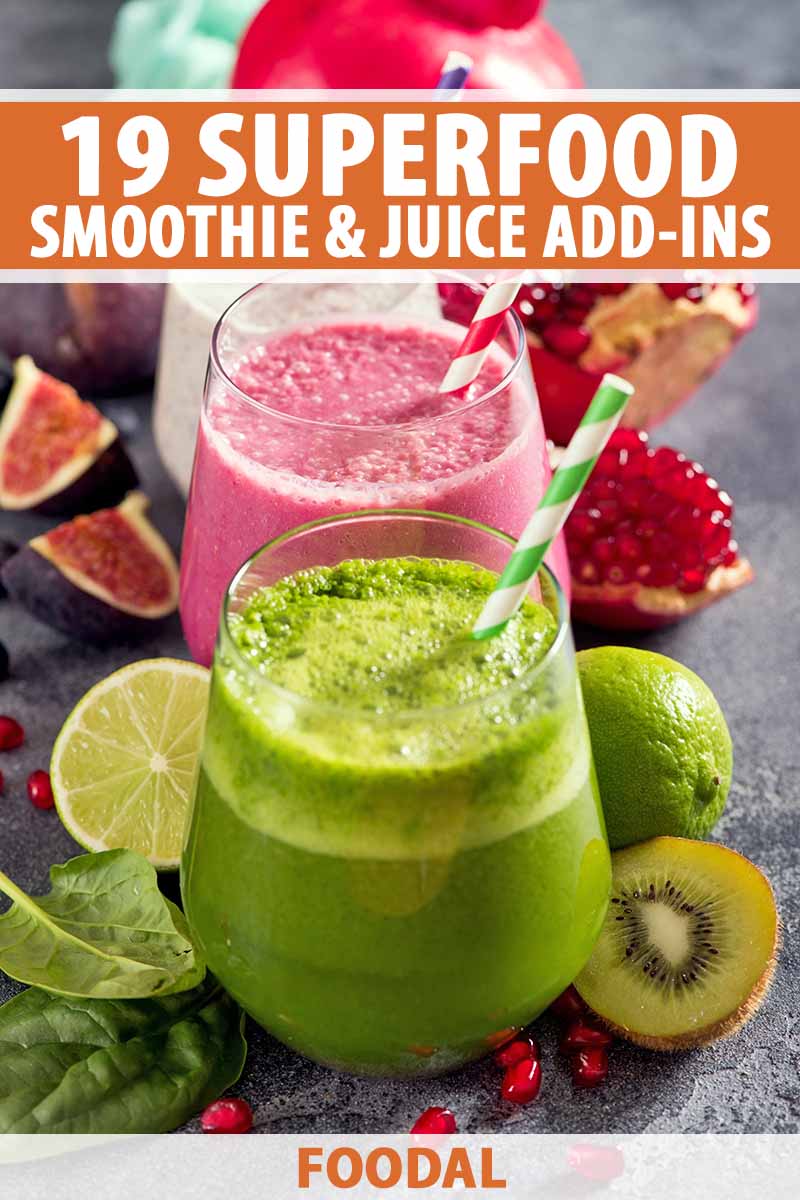
According to U.S. News & World Report, green smoothies made with leafy green vegetables and nut milks are whole food marvels, along with healthy green juices (though, arguably, so is any vegetable juice – like this healthy V8-style tomato juice).
And when so-called “superfoods” are part of the mix, they pack an even more powerful punch of vitamins, minerals, omega fatty acids, and phytonutrients.
Vegans, vegetarians, busy families, gym devotees, whole-foodies, and anyone who wants to enjoy a healthier, nutrient-rich diet: these add-ins are for all of you!
But first, let’s get the rundown on exactly what we’re talking about.
19 Superfood Add-Ins for Smoothies and Juices
What Are Superfoods?
A superfood is a nutrient-dense ingredient that’s loaded with essential health-enhancing, disease-fighting properties. These are also referred to as functional foods.
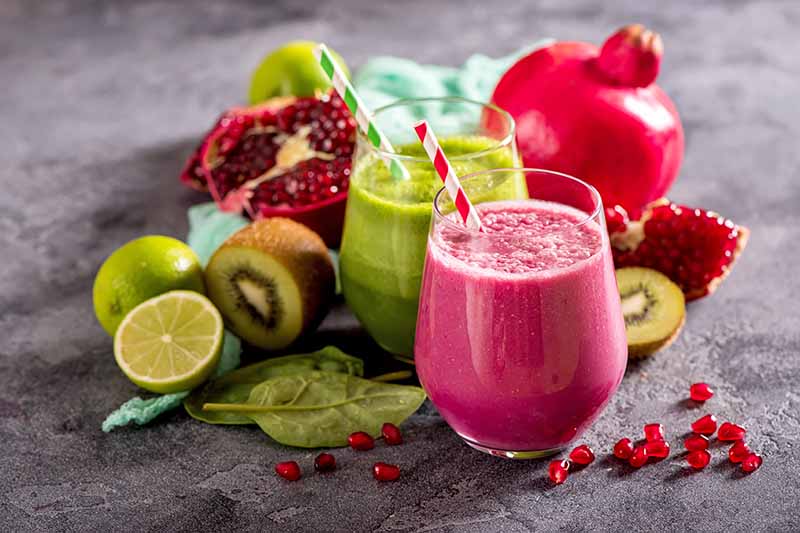
When combined with a healthy serving of fruits and vegetables, the ingredients described here act as an extra power boost, in a nutritional sense.
And Essential Fatty Acids?
You will see omega-3 fatty acids mentioned as a component of many of these nutrition boosters.
First, these are referred to as “essential” because they’re needed for our health, and the body can’t make them on its own.
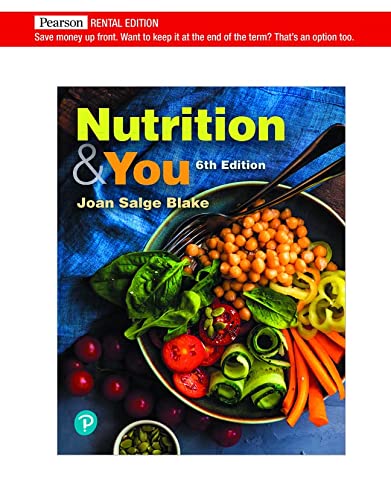
Nutrition & You, 6th Edition, available on Amazon
Alpha-linoleic acid (an omega-3) and linoleic acid (an omega-6) are fatty acids. EPA and DHA are also types of omega-3s. These contribute to a variety of effects in the body, including skin and nerve health, brain health, blood pressure, and blood clotting.
What’s important to keep in mind here is that omega-3s and omega-6s need to be consumed in a proper ratio for optimal health. Today, many people get too many omega-6s in their diets, so consuming foods high in omega-3s can help to regain this crucial balance.
Many foods containing essential fatty acids spoil quickly. Be sure to keep them in the refrigerator or freezer and consume them quickly.
For more information about essential fatty acids, and nutrition in general, check out Nutrition & You by Joan Salge Blake, available on Amazon.
What About Phytochemicals?
As for these often mentioned but not always fully understood components of a healthy diet, phytochemicals are the many natural compounds in plants – often those that give them their scents and colors – that are considered beneficial to those who eat them, and that have been shown to lower the risk of certain diseases in some cases.
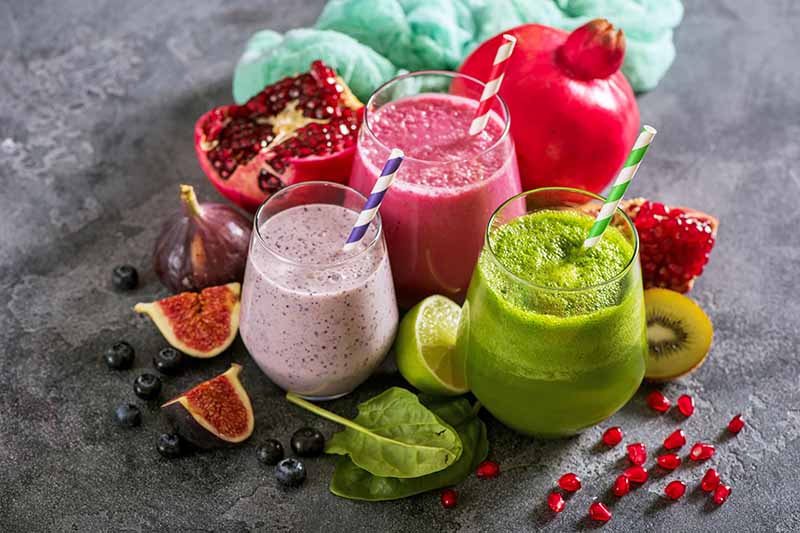
In other words, certain natural foods are endowed with unique beneficial properties, and it’s a wise smoothie-maker who incorporates them into his or her daily routine.
Animal-based foods also contain health-promoting compounds that can go beyond basic nutritional benefits. These are known as zoochemicals. When obtained from animal-based products, omega-3s are an example of a zoochemical.

Crazy Sexy Juice: 100+ Simple Juice, Smoothie & Nut Milk Recipes to Supercharge Your Health
Be sure to try new foods in moderation, using nutritious recipes like you’ll find in Crazy Sexy Juice by Kris Carr, available on Amazon, as a guide.
19 Superfood Add-Ins
And so, without further ado, let’s get to our list of popular ingredients and their amazing potential health benefits as true superfoods!
1. Acai Berries
One of the most antioxidant-rich berries, acais come from the acai palm of South America.
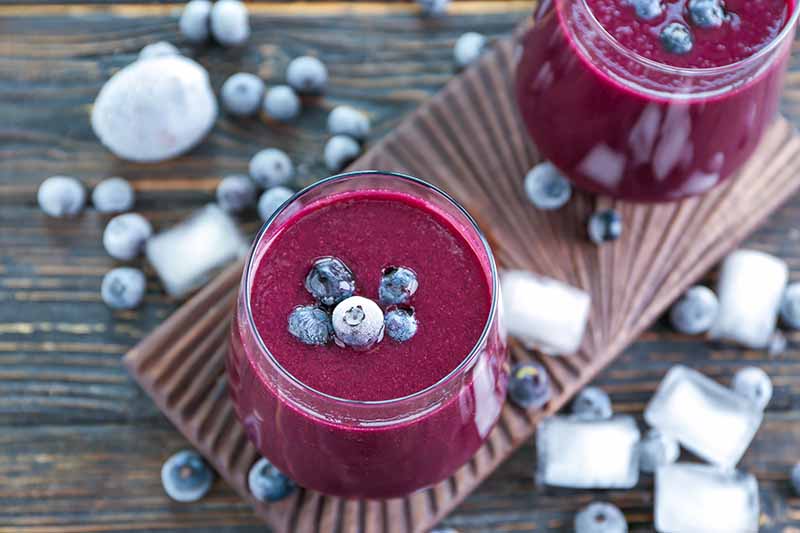
Acai is typically available at supermarkets or grocery stores as a frozen puree or in a dried, powdered form. This is because the fresh berries can go rancid very quickly once picked, and do not ship well.
When you shop, look for unsweetened acai puree or powder to combine with blueberries and pomegranate, two other vitamin C-rich antioxidants, for a boost to your immune system.
This will make a delightful and fitting addition to our mixed berry smoothie recipe!
2. Aloe Vera
The juice of this succulent plant, native to northern Africa, is widely respected for its phytochemical content, particularly saponins that are said to cleanse the blood and boost the immune system, lignins that aid in absorption, and anti-inflammatory salicylic acid.
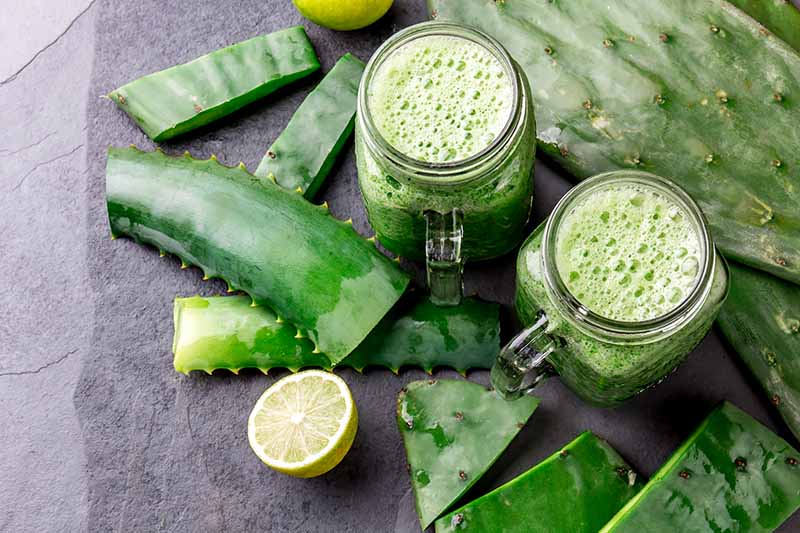
A comforting remedy for digestive discomfort, purchase it in juice form to combine with other anti-inflammatories like cucumber, honeydew, and pear.
3. Apple Cider Vinegar
The probiotic properties of this superfood make it a worthy complement to any juice blend to maintain a healthy gut.
It also offers anti-inflammatory properties, may restore a healthy pH balance to the stomach, and has been said to provide some relief from acid reflux symptoms.
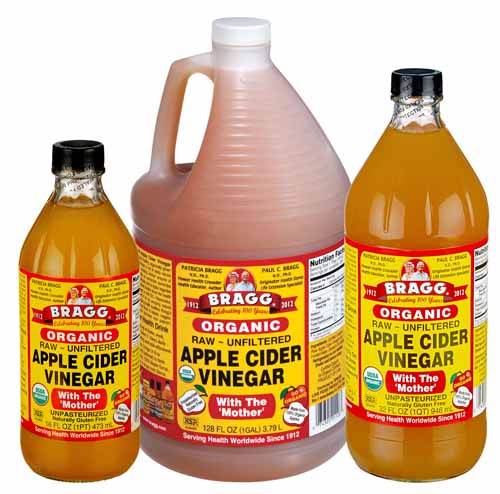
Bragg Organic Raw Apple Cider Vinegar
Try incorporating apple cider vinegar into any recipe that includes pears, apples, and cucumbers for a pleasing taste sensation.
When shopping, you want to have a discerning eye in order to avoid buying apple cider vinegar that has been pasteurized, a process that removes its beneficial probiotic properties.
We like Bragg’s Organic Raw Apple Cider Vinegar, because it contains live active bacterial cultures that are beneficial for your digestive tract. You can find it on Amazon.
4. Avocado
Avocados contain the beneficial omega-3 known as alpha-linolenic acid. They are also high in another very important nutrient, oleic acid, which is a monounsaturated fat.
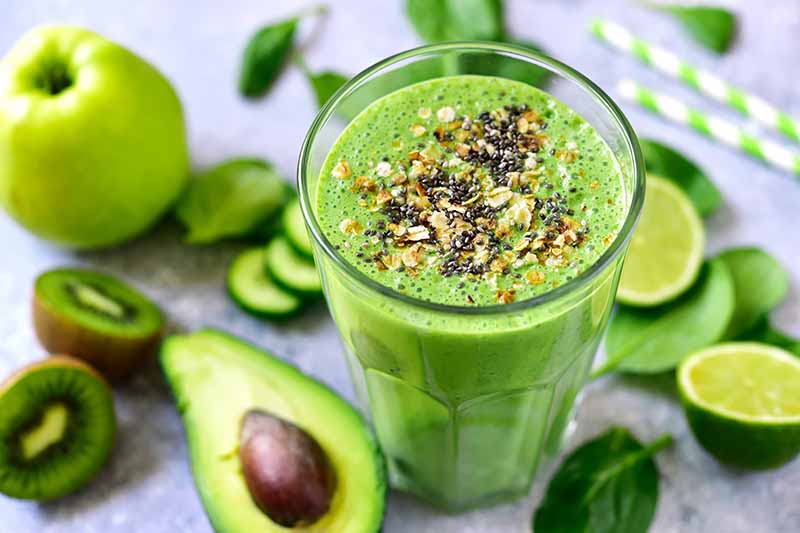
Avocados are a versatile superfood some claim may prove helpful in the battle against heart disease and cancer.
In all cases, please remember that preventive care in the form of a healthy diet should not be equated with a cure or treatment for any disease.
With a smooth and thick consistency and subtle flavor, avocados are the perfect fruit for drinks, blending beautifully and effortlessly with a variety of other fruits and vegetables.
5. Bee Pollen
Bee pollen is a nutritional wonder that is loaded with vitamins, minerals, antioxidants, and all of the essential amino acids, making it a complete protein.
That being said…
With its sweet flowery taste, bee pollen is great in creamy pick-me-ups as well as fruit juice blends, and is especially delicious in combinations that include cinnamon, like this fresh papaya and ginger smoothie.
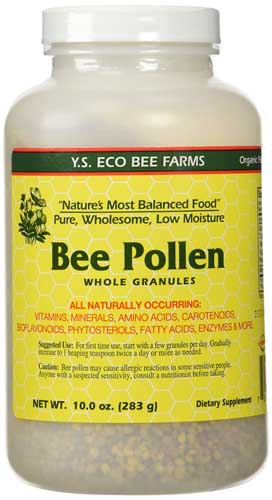
Foodal recommends YS ECO’s Bee Pollen Whole Granulars
Opinions vary on the different choices to enhance a drink with bee pollen, and there is no one right way! Some blend it in, while others sprinkle it on top of the finished beverage, reminiscent of the queen bee atop her throne.
6. Cacao Nibs
From Mexico, Central America, and South America, these raw and unprocessed chocolate bits have a bitter chocolatey taste and crunchy texture.
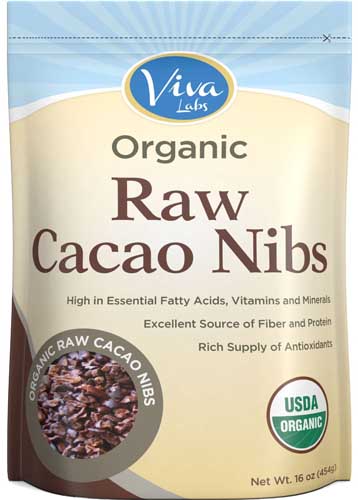
Foodal recommends Viva Lab’s “Best” Tasting Organic Raw Cacao Nibs
They’re rich in antioxidants, minerals, flavonoids, and monounsaturated fat, not to mention protein, for a nutrient-rich supplement to your favorite blended beverage.
Whole nibs can be ground at home with a coffee grinder or mortar and pestle. Or you can buy raw cacao powder for smooth blending with nut milks, bananas, berries, or whatever is your pleasure.
7. Cayenne
This is a hot one, so use it sparingly until you’re familiar with its heat!
As an anti-inflammatory with capsaicin, this beverage-booster is intensely spicy.
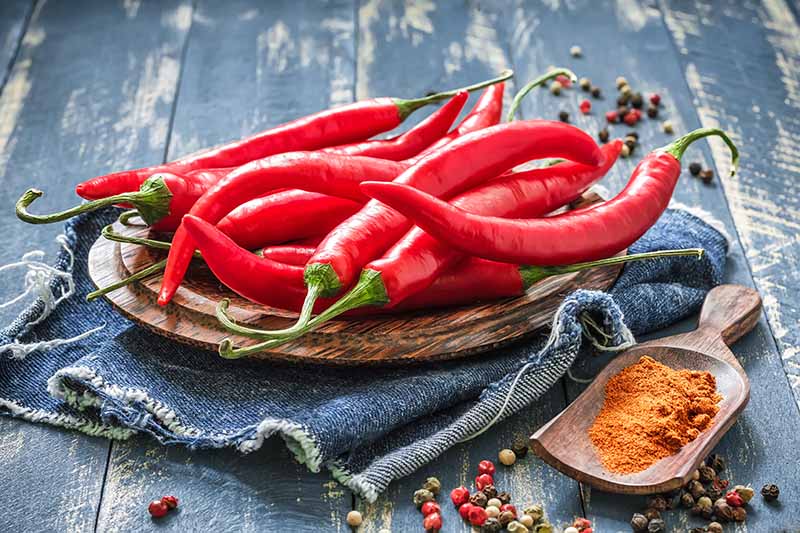
Feeling a little under the weather? Cayenne may boost your immune system and even help to decongest your sinuses.
Give a kick to your kale with a nutritious green smoothie, like the one I make with my NutriBullet blender. Experiment with your favorite fruits and veggies!
8. Chia Seeds
Remember chia pets? Yup, these are the same seeds.
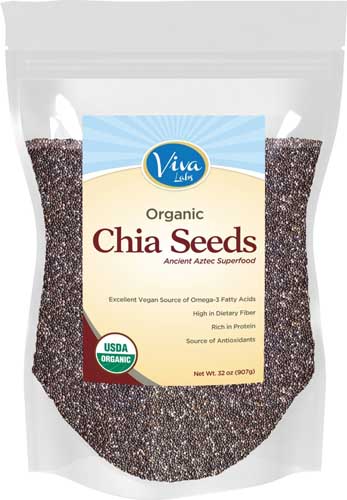
Foodal recommends Viva Labs Organic Chia Seeds 2-Pound Bag
A highly popular superfood supplement, chia seeds come from the same plant family as mint. They’re an annual herb that produces very pretty flowers that would look lovely in your garden if you live in the correct climate. This plant is native to the southern and central parts of Mexico.
Chia seeds are relatively inexpensive, so buy a big bag – and make sure to use a high-speed blender for a smooth smoothie!
Chia seeds are high in fiber, as well as protein and omega-3s. They’re hydrophilic, meaning they attract and absorb water. Combining them with juice and waiting for a certain amount of time will form a jelly-like substance. Using this technique, you can make recipes for fruity frescas or overnight oats!
A tablespoon of seeds will be a great addition in a green shake, lending a hint of nuttiness to the overall flavor.
9. Cinnamon
This spice is an excellent beverage enhancer, as it aids in the management of blood sugar and cholesterol levels. Cinnamon contains cinnamic acid, an antioxidant that helps to keep essential omega-3 fatty acids from oxidizing.
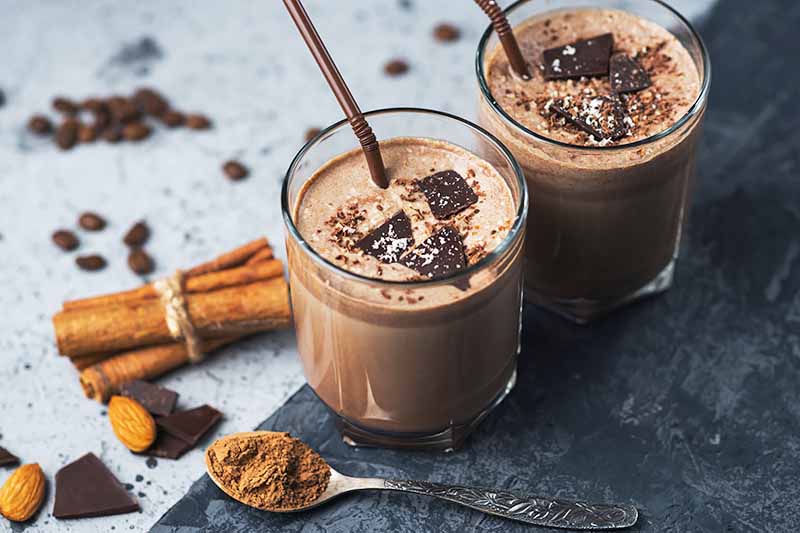
Freshly grated or ground cinnamon from a whole cinnamon stick are the best options to include in your shakes and juices.
How about a blend of nut milk, apples, bananas, blueberries, honey, cinnamon, and a dash of cayenne for a spicy pick-me-up?
10. Coconut Oil
Coconut oil is extracted from the flesh of the mature coconut, which is harvested from the coconut palm.
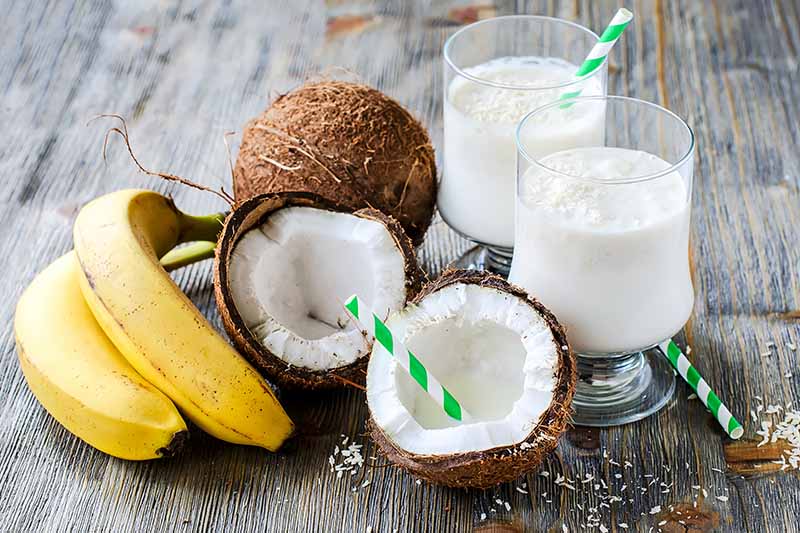
It helps to balance blood sugar and may aid thyroid function. It’s also anti-fungal, anti-viral, and full of antioxidants.
Be sure to use a high-speed blender or melt the oil first for a smooth consistency. When chilled, it can form solid beads that some people really like, whereas others aren’t fans of the texture.
It will impart a sweet, mild coconut flavor to your drink, and is great with tropical fruits like mango.
11. Flax Seeds
Flax (also called linseed) is a fiber crop that is cultivated in cooler areas of the world. Flax seeds are not only highly nutritious, but linen fabric is also made from cellulose fibers found in the stalks of the same plant!
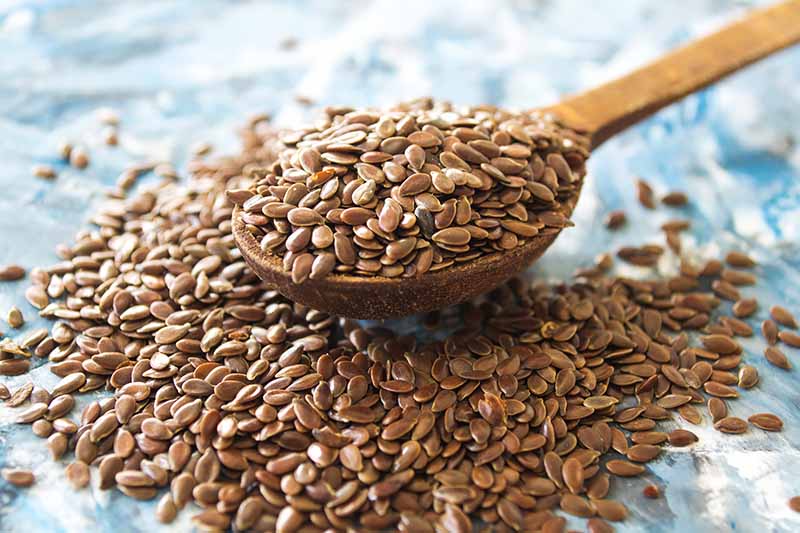
Just mix a tablespoon into your mixture, blend with your high-speed blender, and reap the benefits of this nutty, slightly grassy superfood. Note that pre-ground seeds are easier to digest.
12. Goji Berries
Rich in antioxidants and vitamins A and C, goji berries contain carotenoids, color pigments that may be effective in fighting cancer.
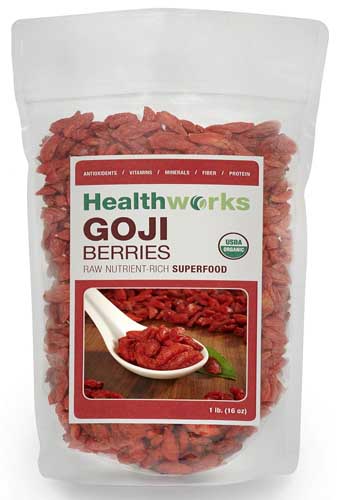
Foodal recommends Healthworks Raw Organic Goji Berries
These little nuggets of nutrition are on the tough side, so consider soaking them ahead of use in hot water for just a couple minutes until softened.
Their bitter taste creates a flavorful counterpoint to the sweetness of coconut and mango, as well as a savory base for green drinks rich in kale.
13. Hemp Seeds
Chock-full of omega-3s and omega-6s, hemp seeds are an excellent source of protein. Blending them into your drinks will take you a long way toward a healthy heart.
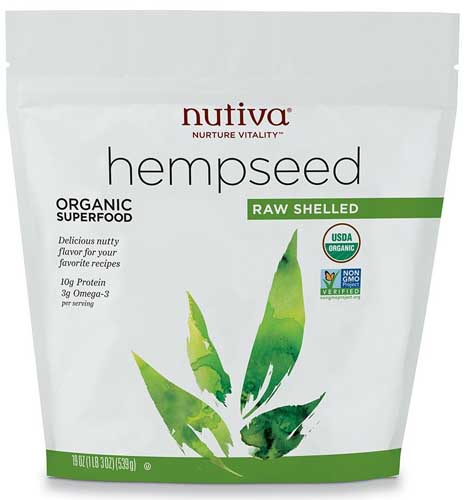
Foodal recommends Nutiva Organic Shelled Hempseed
Buy shelled seeds called “hemp hearts” that can be tossed directly into your beverage.
Mildly nutty, hemp seeds blend quietly into any shake or juice blend, imparting nutrition without changing the flavor drastically. Try a few tablespoons in our recipe for tahini banana smoothies.
14. Maca Powder
Maca is an herb that is native to the high Andes of Peru. Its nutritional value is concentrated in the root.
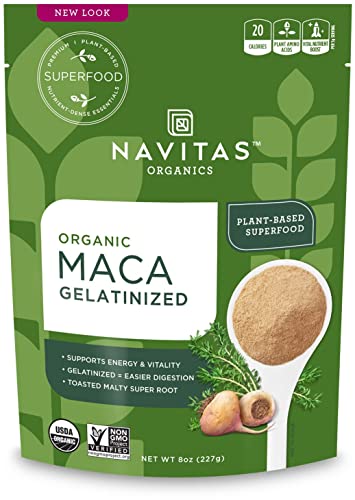
Navitas Organics Maca Gelatinized Powder, 8 oz., available on Amazon
Dried maca can be stored for several years, and is usually used in powdered form for mixing into liquids.
Maca has a nutty flavor, which you may immediately love or otherwise may acquire a taste for. It is known for increasing energy and endurance, and some experts claim it can help to balance hormones.
As with all superfood ingredients, start slowly with maca to gauge your digestive tolerance for it.
Try blending maca, flaxseeds, and a banana into your next healthy beverage concoction!
15. Nutritional Yeast
Different from brewer’s yeast, the bitter by-product that feeds on the sugars from the beer-making process, nutritional yeast is a manufactured and fortified supplement that is dense in protein, B vitamins, and minerals.
As a beverage add-in, you’ll want to use either flakes or powder.
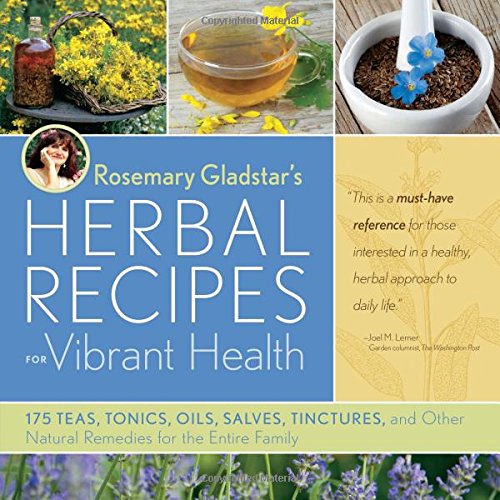
Don’t also confuse nutritional yeast with the kind of yeast cakes or packets that you use for baking! They are not the same. Nutritional yeast has been heated after fermenting, deactivating any leavening power.
Nutritional yeast has a nutty/cheesy essence that imparts a uniquely savory flavor. When used in small quantities, it can be a tasty component in blends of fruits and veggies like carrots, spinach, apples, and oranges.
Because of its stronger flavor, start by using it sparingly at first with the guidance of recipes, like some of my favorites in Rosemary Gladstar’s Herbal Recipes for Vibrant Health: 175 Teas, Tonics, Oils, Salves, Tinctures, and Other Natural Remedies for the Entire Family, available on Amazon.
16. Spirulina
Spirulina is made from an aquatic plant, and its superstar components are protein and omega-3 fatty acids, as well as phytonutrients that act as powerful antioxidants.
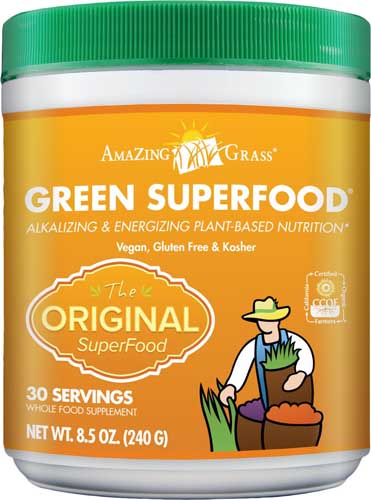
Foodal recommends Amazing Grass Green SuperFood Original
Spirulina may also contribute to dental health, and it binds with heavy metals, thus helping to remove them from the body according to some sources. It can help to lower LDL (“bad”) cholesterol while increasing HDL (“good”) cholesterol levels, and may aid in fighting certain forms of cancer as well.
Best enjoyed by including a small pinch or two in green smoothies, green juices like spinach and apple, or green carrot juice, you may find the taste of spirulina to be unpleasant at first. The taste can also vary depending on the origins of the spirulina that you buy.
So start small! Begin by using 1/8 teaspoon in a recipe, and increase the amount from there.
You don’t have to have it only in green juices and shakes. You can also use it in this apple beet carrot juice, for instance.
Experiment with different combinations of fruits and vegetables until you become more accustomed to its flavor – or a pro at masking it!
17. Turmeric
Turmeric is an Indian root that looks quite a lot like ginger on the outside, but it has brilliant orange flesh.
Known for its antioxidant properties, it promotes the healthy metabolism of fats and carbohydrates, and may offer benefits to sufferers of digestive and inflammatory issues. It may also show promise in offerig certain cancer-fighting benefits.
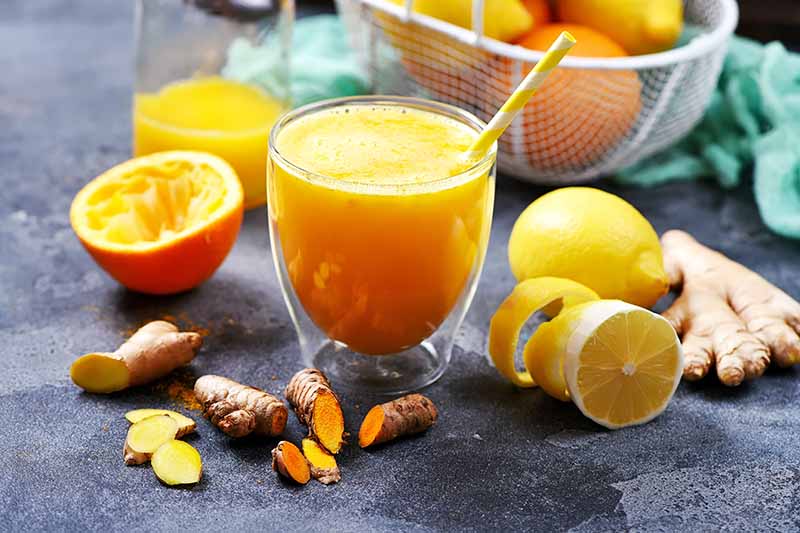
Peel and grate turmeric to blend into a variety of beverages. Its piquant flavor is great in green smoothies, as well as juice combos that include carrot or pineapple.
Try it in our recipe for a dairy-free pineapple coconut smoothie.
18. Walnuts
Walnuts, and nuts in general, are great sources of protein. Shelled walnuts resemble the lobes of the brain, and it is actually said that eating them contributes to optimal brain function.
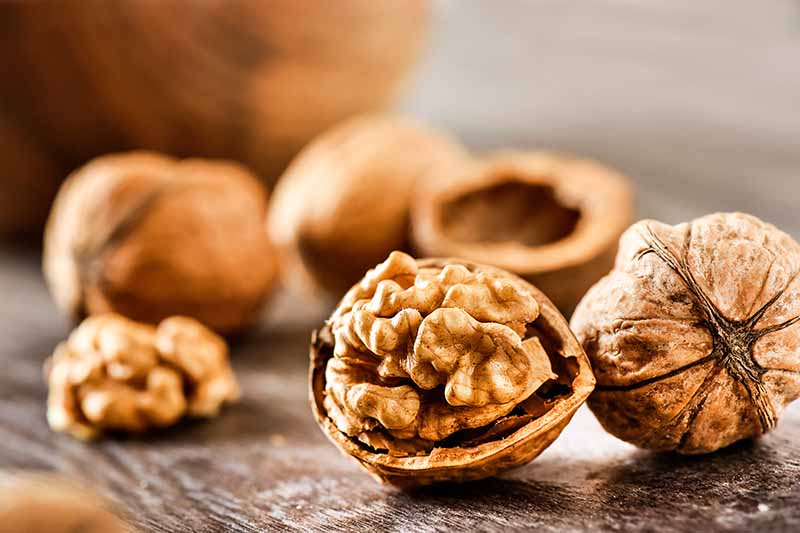
The walnut is rich in monounsaturated fats and omega-3s. It contains biotin, a B-complex vitamin that helps process fatty acids, and contributes to strong nails, hair, and skin. It may also be helpful in managing cholesterol levels.
Soak shelled walnuts in water overnight in the refrigerator before blending to create a creamier texture, and enjoy them with bananas and blueberries.
19. Wheatgrass
Packed with powerful antioxidants, the fresh – and obviously grassy! – taste of wheatgrass isn’t everyone’s favorite, but the value of its anti-inflammatory, immune-building properties far outweighs what it lacks in palatability.
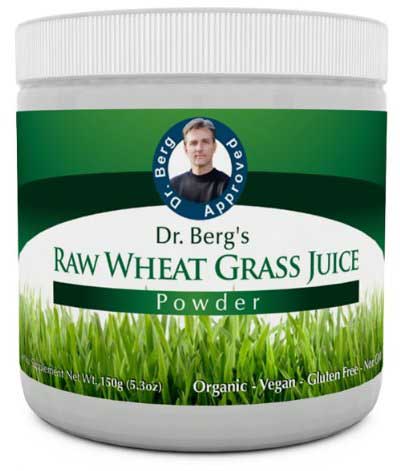
Dr. Berg’s Raw Organic Wheat Grass Juice Powder
You can buy pre-made wheatgrass juice, but you can also juice it yourself fresh for each drink to gain the highest amount of nutritional content. If you choose to make your own, you will need a high-quality masticating juicer to squeeze out its essence.
Once it’s juiced, you can add a shot of wheatgrass to fruits like pineapple and banana with either a base of coconut water or nut milk for a refreshing energizer.
For those that don’t have the time to grow their own, you can also buy powdered versions.
We highly recommend Dr. Berg’s Raw Organic Wheat Grass Juice Powder. It’s grown in Utah on an ancient lake bed where it has the ability to pick up all sorts of beneficial trace minerals, and is processed by freeze-drying to better retain all of the nutrients.
You can find it on Amazon.
Get Your Healthy Game On
You have our list of favorite superfood add-ins. The rest is up to you!
Learning about a healthy diet is one thing, but putting that knowledge to use in all kinds of nutrient-packed smoothies and fabulous juices – or even a delicious mango lassi, for a uniquely refreshing treat – is something else entirely!
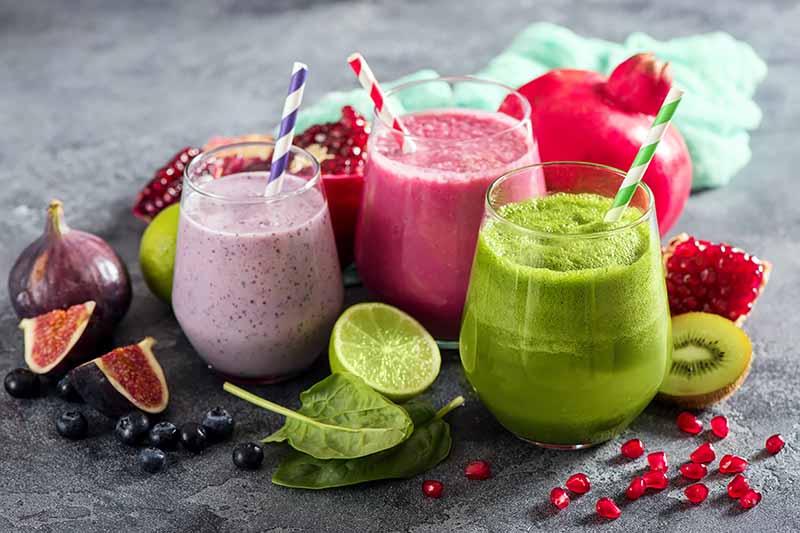
Be sure to review our top smoothie solutions for the best and smoothest blending experience possible!
Make each day a healthy one, and let these superfoods help to keep you at the top of your nutritional game.
What’s your favorite add-in? Do you already have some ideas for your next shake or juice? Let me know in the comments!
If you’re looking for other guides and advice on healthy eating, read more of our informational articles, starting with these:
- Beyond Carrots: Foods for Good Eye Health
- How to Stock a Healthy Pantry
- The Power of Pulses, Beans, and Legumes in Your Diet
The staff at Foodal are not medical professionals and this article should not be construed as medical advice. Foodal and Ask the Experts, LLC assume no liability for the use or misuse of the material presented above. Always consult with a medical professional before changing your diet, or using supplements or manufactured or natural medications.
© Ask the Experts, LLC. ALL RIGHTS RESERVED. See our TOS for more details. Originally published by Lori Jo Hendrix. With additional editing and writing by Allison Sidhu and Nikki Cervone. Last updated on December 26, 2022. Product photos via Amazon. Uncredited photos via Shutterstock.
About Nan Schiller
Nan Schiller is a writer from southeastern Pennsylvania. When she’s not in the garden, she’s in the kitchen preparing imaginative gluten- and dairy-free meals. With a background in business, writing, editing, and photography, Nan writes humorous and informative articles on gardening, food, parenting, and real estate topics. Having celiac disease has only served to inspire her to continue to explore creative ways to provide her family with nutritious locally-sourced food.

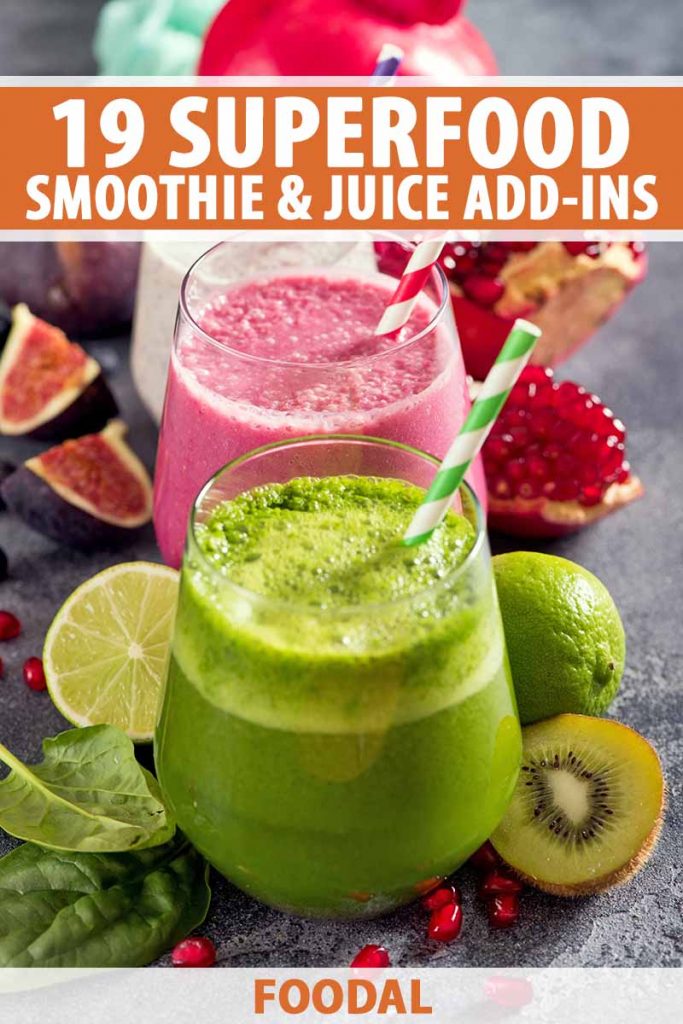


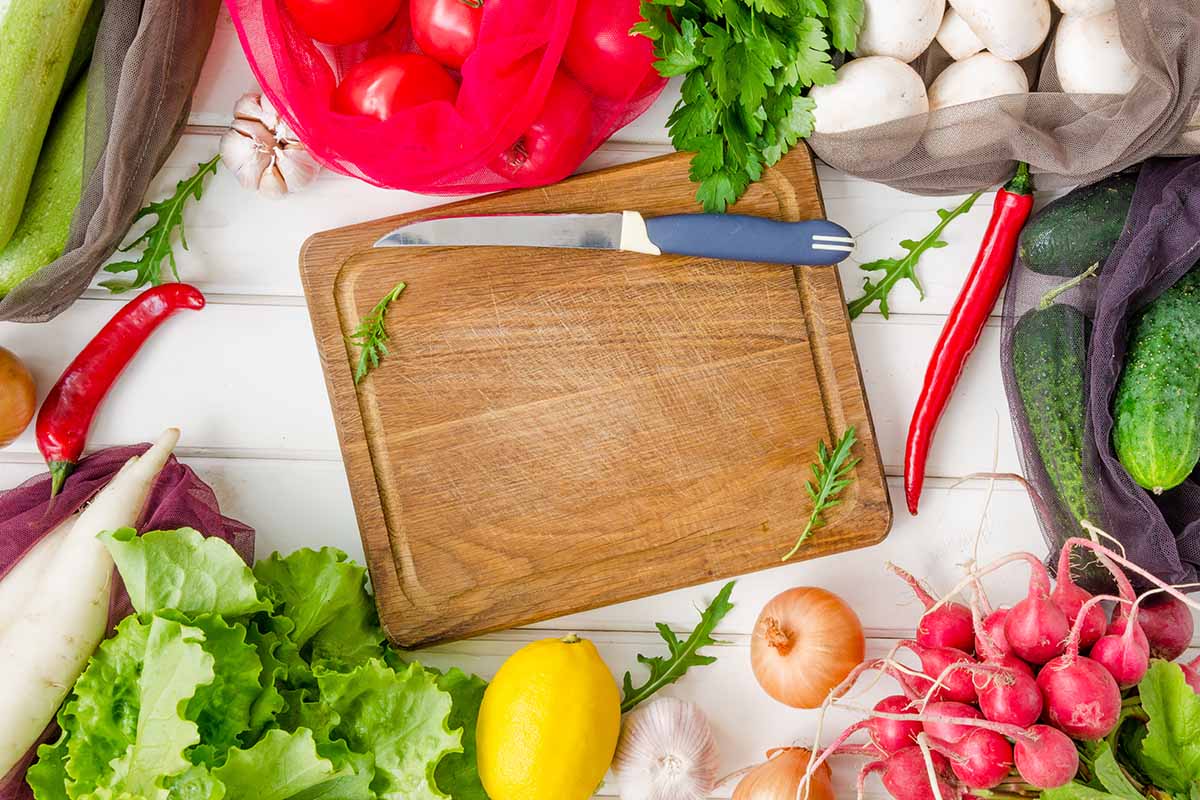
Well I will be honest I would have thought that flax seeds would have been number one, but maybe that just shows how well I am keeping up with the trends. Flax seeds were all the crazy a couple of years ago, but I guess these things change. That said, though, I was glad to see that I have two of them on hand all the time in the apple cider vinegar and cayenne pepper, so that is a good start. I also had no idea about aloe vera, and now I can use it for something other than sunburns. Good stuff, and thanks for sharing.
Flaxseed is still one of the best
I have always loved the taste that you get from the Cinnamon plus Chocolate mix, it’s really awesome and really tasty. I am pretty sure that the Chocolate smoothies are the favorite for most people on the globe, that’s a fact. I also liked the Avocado one, I would really like to try that one because I personally love the Avocado and it also comes with a lot of proteins and vitamins that are going to be well-received by my stomach, that being said, I really enjoyed the article, thank you for sharing it with us!
Hello and thanks for your feedback. I’m a big fan of the chocolate/cinnamon combo, too. Doesn’t it feel great to enjoy something that’s so good for you? Cheers!
This is great. I use walnuts in almost every smoothie that I add bananas in, it gives it that extra bit of taste that makes it perfect. I also use apple cider vinegar in ALL smoothies I make because its great for weightloss, and it has a ton of healhth benefits in general and helps cleanse your body of toxins.
Hi and thanks for your comments. It’s great that you’ve made superfoods a regular part of your diet! Here’s to good health!
Try cooked sweet potatoes!
Hi Natalie –
Sweet potatoes are a great idea. They’re an excellent source of Vitamin A, and with a high-speed blender, you can add them raw for optimal nutrition.
Thanks for reading and responding.
Nan
I appreciate the information provided here. I’ve been using a Vitamix and have been making Smoothies for my husband and I every morning.
What I’ve wondered (about “flaxseed” or “hempseed” for example) is how much to add to my blender. If I am aiming to make 2 Smoothies, do I put 2 servings of the additive I’m using? Or what if I use two additives (like Hemp and Chia seeds), do I put one serving of each in there or two servings of each. What would one recommend? I haven’t been following specific recipes for my smoothies.
Hi Melissa –
We’re so happy you found the article informative and are enjoying making and drinking healthy smoothies with your hubby. Please check out Meghan’s delicious recipe in her article, “When You’re Feeling Under the Weather, It’s Time to Bust Out this Get Well Green Smoothie.” I think it calls for an amount that’s just right – 1 teaspoon of chia or flax seeds per 2 servings. The measurements here provide great guidelines. Experiment with your favorite superfoods and enjoy!
I drink a smoothie daily can I add more than 1 or 2 of these add-ins together?
Absolutely! Adjust the quantity of liquid as needed, to get the consistency you’re looking for.
Might be worth noting that spirulina can block absorption of vitamin B12, such as the high amounts found in oatmilks
Also don’t confuse Brewer’s Yeast with Good Tasting Nutritional Yeast — completely different, NOT a product of brewing, NOT bitter tasting, but delicious, and just as much of a superfood. We used to make “cheese sauce” with it. Nobody should have to suffer with Brewer’s yeast! ????
Correct! See our article on nutritional yeast for more info.